
New Photos
December 30, 2006
|
The Colors of Winter This far south, and in a warming climate, winter is not entirely gray, brown, black and white |
|
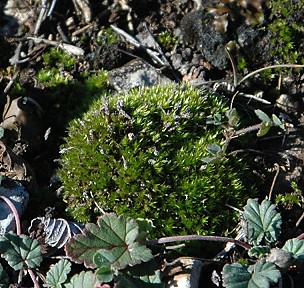 |
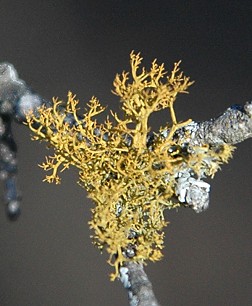 |
| Within 48 hours of the first rain last weekend, tiny lumps of moss like emerald-green fur stood out on the bare ground and rock of the dry woods. Some had even put up their little spore-bearing structures, as here. | These gold-colored lacy lichens grow on our scrubby oaks and cedar elms. |
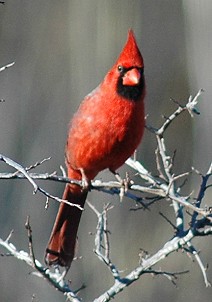 |
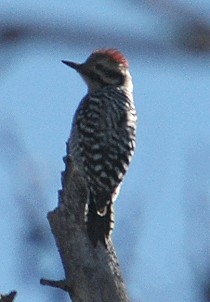 |
| A reliable source of cheery red all year round, cardinals look even brighter against a frost-bleached meadow. | Though the ladder-back isn't a bright colored bird, his busy tapping and cheerful call do brighten the winter days. |
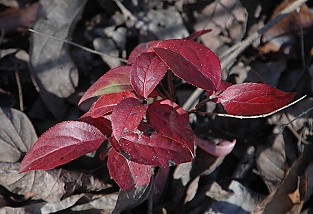 |
|
| In the late fall and early winter, rusty-blackhaw viburnum leaves turn rich shades of red. This slow-growing shrub is often lost to developers' bulldozers--we used to see it, along with rough-leaf dogwood--along every country road's fencerow, and in thickets, but it's becoming rarer. Though our larger ones have dropped their leaves, this tiny one lit up the trail one afternoon. | |
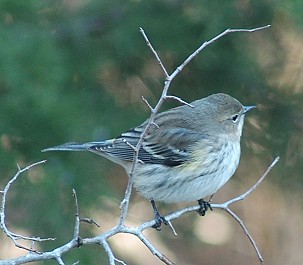 |
|
| Fluffed up a little on a cold day, this yellow-rumped warbler waited for a group of robins to finish drinking before coming down to the water. | |
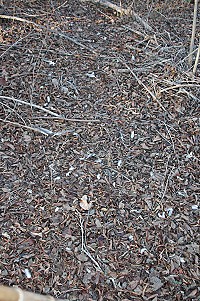 |
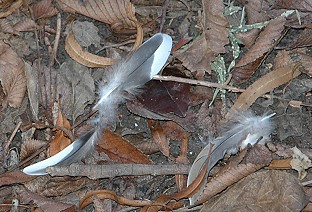 |
| "In the midst of life, we are in death..." A scattered trail of feathers suggests that the Cooper's hawk struck hard and fast and then took its prey aloft to feed. | Close up, it's easy to see that the feathers are unworn, and must have been deposited here the same day as the photo was taken. |
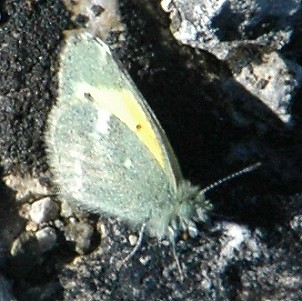 |
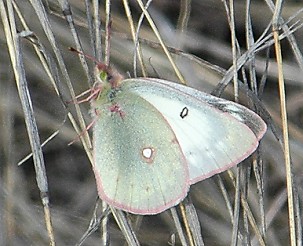 |
| Dainty Sulphurs fly low, only a few inches above the ground, but the yellow and orange on the tops of their wings make little bright spots of sunlight as they dance from one plant to another, hoping to find something in flower. | Much larger than the Dainty Sulphur, this white-form Orange Sulphur looks satiny instead of furry. The pattern of light spots in the dark margin of its forewing makes the species identification. |
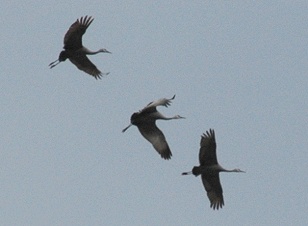 |
|
| On Saturday afternoon, a flock of twelve sandhill cranes appeared overhead...they're either very late coming south, or they started north too early and turned around. I love their melodious calls, even more evocative than geese, and their graceful flight. | |
![]()

